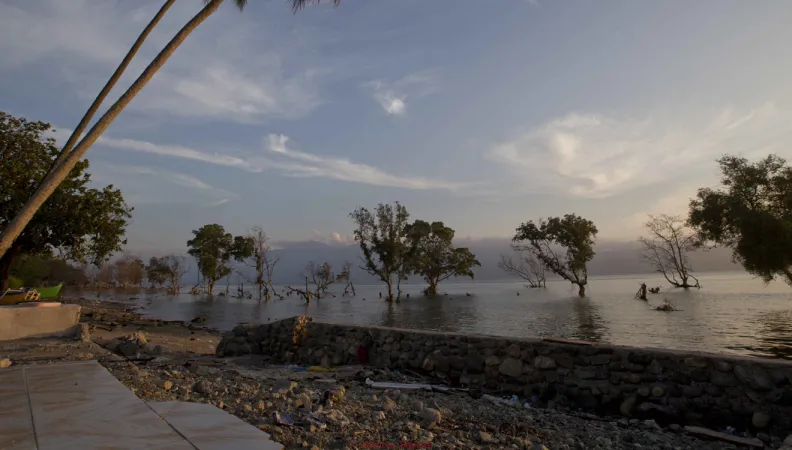Share the page
With a Fifth of the World’s Mangroves, Indonesia is Boosting its Blue Carbon Strategy
Published on

More and more countries are realizing that the best way to reduce carbon is to capture it, using oceans and coastal ecosystems. The Indonesia Climate Change Trust Fund (ICCTF) and AFD have just signed a grant agreement that aims to better integrate “blue carbon” ecosystems in the country's climate and biodiversity policies.
The Indonesian government has given the country’s Climate Change Trust Fund a mandate to reduce greenhouse gases and integrate climate change prevention into the country’s development plans on a national, regional and local scale. These are the country’s latest steps to oversee a burgeoning blue carbon sector.
A fifth of the world's mangroves
Carbon is sequestered by oceans and coastal ecosystems, particularly those with mangroves, seagrass beds and coastal marshes. Mangroves, or mangrove forests, are highly productive, have a significant carbon sequestration capacity – five times that of a tropical forest, and provide many ecosystem services (such as coastal protection, nurseries, shelter and water filtering).
Home to about 20% of the world's remaining mangroves, Indonesia has the largest coverage in the world, and has a key role to play in regulating the global climate system and preserving biodiversity.
See also: Using Satellites to Save the Sahel’s Forests
Pollution, the clearing of mangrove forests for coastal development and aquaculture (fish farming) have contributed to the destruction of the tropical trees, contributing to the loss of an estimated 35% of mangroves worldwide.
Much can be done to reverse this degradation process and restore mangrove forests. Blue carbon-based adaptation and mitigation efforts are now a key focus of the Indonesian government’s strategy to achieve its Nationally Determined Contributions (NDCs) target by 2030.
See also: AFD Reinforces Support for Low-Carbon Transition in Indonesia and Southeast Asia
Improved coordination
While most coastal ecosystem restoration and rehabilitation initiatives have been organized in a separate and uncoordinated manner, Indonesia has developed a national blue carbon policy framework, with the aim of merging initiatives and programs and integrating them into coastal and marine ecosystem policies.
AFD is offering a €620,000 support grant to implement this strategy. “This financing will be used to gain a better understanding of blue carbon finance policies and to improve conservation measures for blue carbon ecosystems in Indonesia,” says Gabriel A. Wagey, ICCTF Executive Director.
This support comes from AFD’s 2050 Facility, which aims to support partner countries in adopting sustainable, low-carbon development trajectories.
AFD Group is supporting Indonesia's low-carbon development for the period of 2022-2026, as part of a fair and resilient transition. Find out more about the 2022-2026 Indonesia Strategy.
